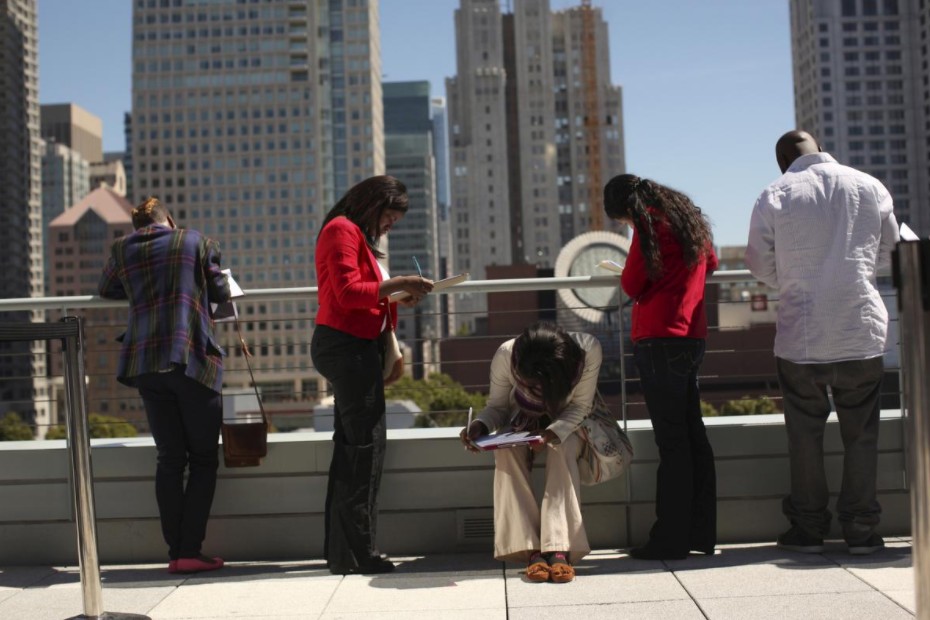The expiration of a $600 weekly jobless supplement at the end of July likely contributed to the decline in claims reported by the Labor Department on Thursday. Reports from payroll scheduling and workforce management firms suggested a decline in employment in early August due to the spread of new COVID-19 cases across the United States.
“Unemployment remains a huge problem for the U.S. economy,” said Gus Faucher, chief economist at PNC Financial in Pittsburgh. “It could also be that the expiration of bonus unemployment payments of $600 per week at the end of July has discouraged some potential beneficiaries from applying for unemployment insurance, the expiration may also have encouraged some beneficiaries to leave unemployment and take a job.”
Initial claims for state unemployment benefits decreased 228,000 to a seasonally adjusted 963,000 for the week ended Aug. 8. That was the lowest level since mid-March when authorities started shutting down non-essential business to slow the spread of the novel coronavirus. Economists polled by Reuters had forecast 1.12 million applications in the latest week.
Claims peaked at a record 6.867 million in late March.
New COVID-19 infections are spreading across the nation, forcing authorities in some of the hot spots to either shut down businesses again or pause reopenings.
Data from Homebase, a payroll scheduling and tracking company, showed a decline in employment last week. Figures from Kronos, a workforce management software company, showed a flattening in the number of shifts worked.
“Even as businesses have reopened and jobs have returned, layoffs are continuing to mount,” said Rubeela Farooqi, chief U.S. economist at High Frequency Economics in White Plains, New York. “The risk of permanent job losses and damage to the labor market remains high. The economy faces a long and uncertain road back to pre-pandemic levels of prosperity.”
Stocks on Wall Street were mixed in early trading, while prices of U.S Treasuries were down slightly. The dollar .DXY fell against a basket of currencies.
Unemployment high
The $600 extra unemployment benefit lapsed on July 31. President Donald Trump on Saturday signed an executive order that included an extension of the supplement, though he reduced the weekly payout to $400. But there has been confusion over the order.
States are required to cover $100 of the benefit, but governors have indicated they don’t have the financial capacity after revenues were decimated in the fight against the pandemic. The remaining $300 will be funded from a limited emergency disaster relief program, which economists estimated could be depleted as early as September.
Top White House economic adviser Larry Kudlow said on Thursday that Trump’s plan would provide an extra $300 per week. Industry groups and Republicans claimed the $600 weekly supplement was encouraging some unemployed people to stay at home.
Many economists rejected the argument and credited the supplement for the economy’s nascent recovery from a recession triggered by the coronavirus. A government-funded program offering businesses loans to help with wages has also lapsed.
Thursday’s claims report also showed the number of people receiving benefits after an initial week of aid fell 604,000 to 15.486 million in the week ending Aug. 1. A total of 28.3 million people were receiving unemployment checks in the week ending July 25, down 3.066 million from the prior week.
The government reported last week that the economy created 1.763 million jobs in July after adding a record 4.791 million in June. It has regained only 9.3 million of the 22 million jobs lost between February and April.
In a separate report on Thursday, the Labor Department said import prices increased 0.7% in July, driven by higher costs for fuel and a range of other products. Import prices surged 1.4% in June. In the 12 months through July, import prices fell 3.3% after dropping 3.9% in June.
The report followed on the heels of data this week showing consumer and producer prices accelerated in July.
The higher prices further dispel fears of deflation, a decline in the general price level that is harmful during a recession as consumers and businesses may delay purchases in anticipation of lower prices.



